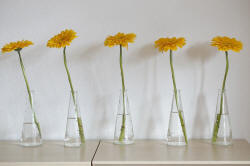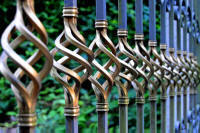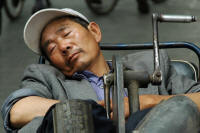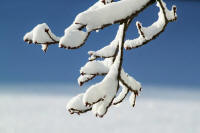Names for things and people: nouns

Nouns are the words we use to give names to things, actions and people. There 4 different types of nouns but they all do the same thing.
Examples in red on this page are wrong.
 |
Proper nouns |
| Albert Einstein |
Proper nouns are the names for people and places. They usually begin with a CAPITAL letter. Here are some examples:
- People
- Mary, Tiger Woods, Mr Smith, Uncle
Fred
etc.
We do not put a, an or the before these nouns.
- Mary, Tiger Woods, Mr Smith, Uncle
Fred
etc.
- Jobs and Positions
- The President, The Pope, The Queen etc.
We usually put the before these nouns because there is only one of them.
- The President, The Pope, The Queen etc.
- Places and buildings
- Britain, Germany,
Margate, London, Lake Victoria, Jamaica, The Thames, The Suez
Canal, Baker Street, St Paul's Cathedral, The Tate Gallery etc.
Sometimes we put the before these nouns. Like this:- rivers, mountain ranges and
canals
We usually put the before these: The Thames, The Nile, The Himalayas, The Alps, The Suez Canal, The Panama Canal - lakes, countries, islands, streets and
cities
We do not usually put the before these: Lake Tanganyika, France, Crete, Rome.
But we do put the in front of the name of the country if it contains an adjective like united or Arab: The United States of America, The United Kingdom, The Federal Republic of Germany, The Arab Emirates - buildings and mountains
This is not easy because we sometimes use the and sometimes we don't!
The Guggenheim Museum, Scotland Yard, Mont Blanc, The Eiger
- rivers, mountain ranges and
canals
- Britain, Germany,
Margate, London, Lake Victoria, Jamaica, The Thames, The Suez
Canal, Baker Street, St Paul's Cathedral, The Tate Gallery etc.
 |
Collective nouns |
In all languages, some nouns are used for groups of things or
people. In English, these can be both singular and plural but
in most languages (yours?) they are only singular. For
example, in English, we can say:
The army is very large (thinking about it as a single thing)
and
The army are helping (thinking about
the army as a lot of
people)
We can also have:
The football team are playing
on Sunday
and
The football team
is playing on Sunday
In the first one, we are thinking about all the players
separately; in the second one we are thinking of
it as a single
thing, the team.
Other collective nouns are, e.g., navy, crew, flock, herd, staff,
family, committee,
government, class etc.
In American English these
words are normally used with a singular verb.
What does your language do?
  |
Mass nouns and Count nounsThis is a very important difference in English |
|
| milk | pencils | |
Most nouns in English are count nouns. Count nouns have a
singular (for one) and plural (for more than one). This means
we can say, for example:
I have three pencils
I want that pencil
The pencil is here
Those pencils are no good
Please give me a pencil
I have several pencils on the desk
Many nouns in English are mass nouns. These nouns do not
have a plural. We can say, for example:
I want that milk
I have some milk
The milk is here
This milk is bad
Please give me some milk
I have some milk in the glass
BUT we CANNOT say:
I have three milks This is wrong
because we cannot count milk
I want those milks This is wrong
because milk cannot have a plural
Those milks are no good This is wrong
because we cannot have a plural and we cannot use a plural verb
(are) with a mass noun like milk
Mass nouns always use a singular verb and never take a plural.
Most mass nouns are:
|
|
|
|
|
There are hundreds of mass nouns in English but here is a list of very common ones:
|
advice air anger art bread cash cheese childhood clothing coffee damage danger education energy equipment fire food freedom friendship |
fun furniture gold hair happiness health heat help honesty housework humour imagination information intelligence kindness knowledge labour laughter love |
luck management metal milk money music news paper pronunciation punctuation quality quantity rain rice rubbish safety sand shopping sleep |
smoke snow soup sport strength sugar sunshine tea time traffic transportation travel understanding warmth water weather weight wood work |
All the words in this list are usually mass nouns in English.
Are they the same in your language? For example, can you say
three informations in your language? You cannot say
that in English.
 |
The grammar of mass and count nouns |

| Noun | Before the noun | But ... | For example |
 Singular count nouns like pencil, car, house, person, cat, elephant |
one, every, any, this, that, the, a(n) | We must always use a determiner with these words | I have
only one pencil Every pencil is broken Any pencil is OK This pencil is no good That pencil is better WRONG: I live in house I have much pencil Pencil is on the table |
 Plural count nouns like pencils, cars, houses, people, cats, elephants |
many, some, several, these, those, the, a couple of or no word |
a/an is not possible It is possible to have no determiner |
I have
many pencils I want some pencils There are several pencils on the desk These pencils are no good Those pencils are better Give me a couple of pencils Pencils must be sharp WRONG: This pencils are good A pencils are OK |
 Mass nouns like milk, information, hope, education, tea |
much, little, less, more, this, that or no word |
a/an is not possible It is possible to have no determiner |
How much
milk do we have? We have a little milk There is less milk in the fridge Give me some more milk This milk is bad That milk is better Milk is good for children WRONG: I have a milk I have several milk Every milk is good These milk are OK A couple of milk is good |

| Noun | After the noun | But ... | For example |
 Singular count nouns like pencil, car, house, person, cat, elephant, team |
a singular verb like is, breaks, opens, lives | Collective nouns can be plural | The pencil
is on the floor The car was clean The houses look nice The person is ringing the bell The cats sleep here The elephant smells awful The team is coming The team are playing WRONG: The pencil are here The house are open |
 Plural count nouns like pencils, cars, houses, people, cats, elephants, team |
Always a plural verb | Singular collective nouns (like team or family) can be plural | The
pencils are on the desk The cars have arrived The houses look beautiful The people are here The cats are eating The elephants are angry The team are here Her family are really friendly WRONG: These pencils is good A pencil are OK |
 Mass nouns like milk, information, hope, education, tea |
Always a singular verb | No exceptions | The milk
is in the fridge The information is useful Hope is important Education is necessary Tea is common in England WRONG: Some milk are in the fridge Some informations are helpful |
Now you can take a test on all this to see if you understand.





